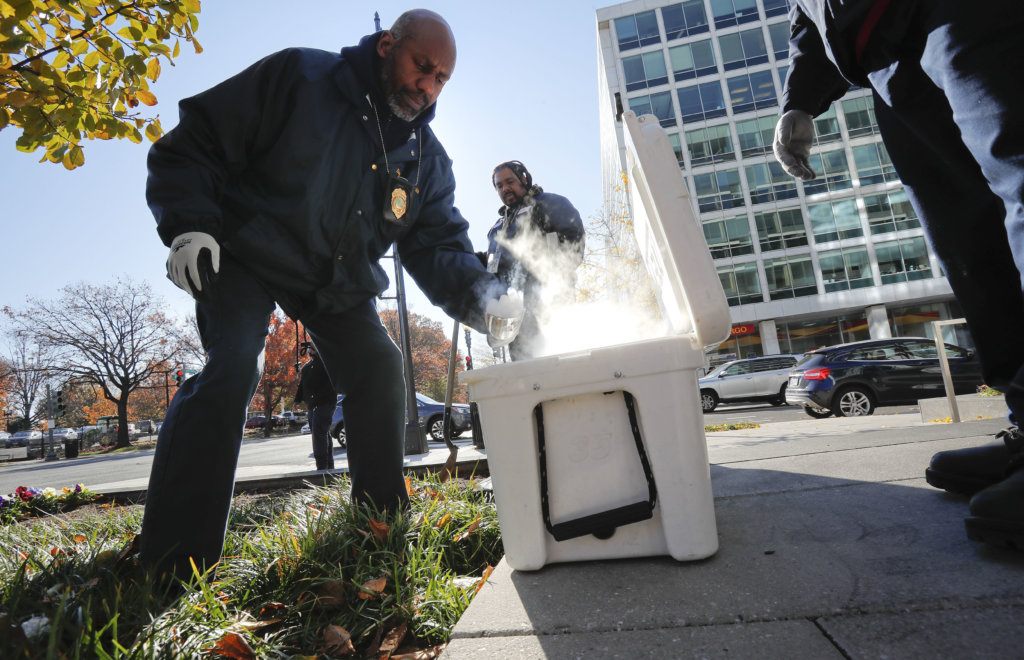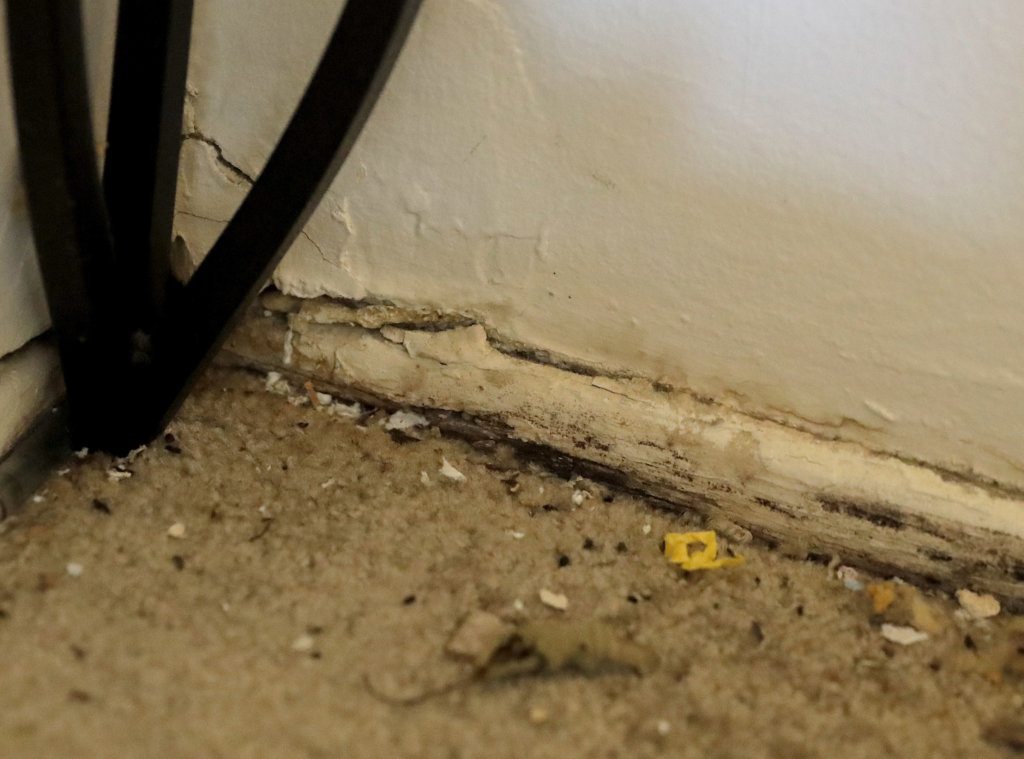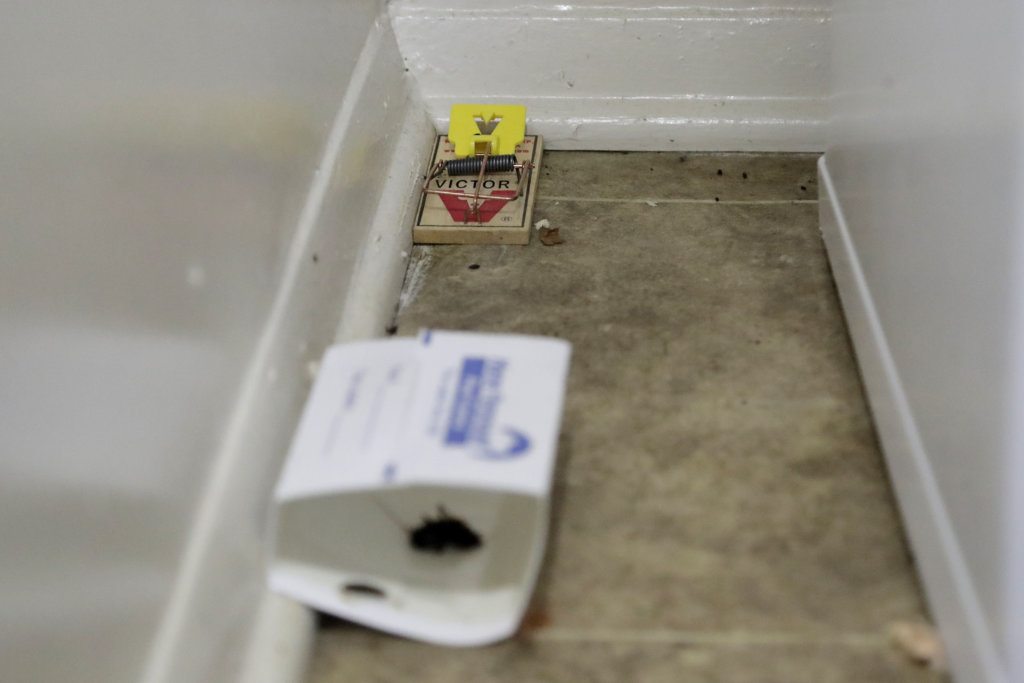D.C. has a rat problem that’s got nothing to do with politics, and the city expects another record-breaking year for rodent complaint calls.
Every American metropolis has to deal with rodents, but Baltimore’s battle with vermin has been thrown into the spotlight following President Donald Trump’s recent tweets about the city and Democratic Maryland Rep. Elijah Cummings.
However, the nation’s capital has its own severe ratty troubles.
By the numbers, D.C.’s rat problem is worse than Baltimore’s, and has been for years. The city has been fighting back against the fuzzy fiends through a series of initiatives.
In 2018, Washington was Orkin’s fourth-rattiest city. In 2017, it was No. 5. In 2016, it was No. 3.
By comparison, Baltimore’s rattiest rank has been going down. It was No. 6 in 2016, No. 8 in 2017, and No. 9 in 2018.
(Neither Baltimore Public Works nor Orkin responded to requests for 2019 data or comment by press time.)
Chicago, for its part, has topped the list for four consecutive years. And New York City, Trump’s hometown, sits in the top five year after year.
Led by its Rodent and Vector Control Division, D.C. is in constant combat with the swelling vermin tide.
Program Director Gerard Brown told WTOP that there are three main reasons for the continuing rise in the rat population.
“The mild winters for the last decade, the 25% increase in food establishments in the last two years, and we have over 700,000 residents in the District,” Brown said.

Warmer winters means fewer rats die from the cold. More restaurants means more food waste. Population growth means more food waste and more trash.
Nobody can say for sure how many rats are in D.C. or Baltimore, according to Brown, who’s been managing rodent control for nearly 15 years.
But they do tally the thousands of calls to the District’s 311 service:
The Wards that call DC 311 the most fluctuates, but Brown said they get the fewest number of calls from Wards 7, 8 and 3.
“In the other five Wards, they (go) up and down,” Brown said.
Data show that since 2016, the District keeps breaking records when it comes to rat complaint calls. Does Brown expect another record to be broken in 2019?
“Unfortunately, yes,” he said.
Apartments — particularly basement apartments — in the Columbia Heights, Mount Pleasant and Petworth areas are rodent hot spots.
It’s not uncommon, especially in the evening and overnight hours, to see multiple rats scurrying between homes and scavenging for snacks right outside residents’ doors.
Not even the White House is safe. As The Washington Post reports, the president’s home is infested with vermin (mice, rats, cockroaches, raccoons) — and has been for almost 200 years.
DC expands its arsenal in the war on rats
After hearing complaints from residents in 2016, D.C. Mayor Muriel Bowser conducted neighborhood tours she called “Rat Walks,” and a held hearing called “Rat Stat,” about dealing with rodents in Washington.
“Out of that came an enhancement for the rodent program,” Brown said. “For FY19 (fiscal year 2019), she gave us an enhancement of $906,000.”
With that additional money, rodent control increased its staff and made it so that their pest controllers can apply rodenticide, as well as work enforcement.
There’s another new addition, too: a real-world test of rat birth control.
“We have a pilot program going on right now with a product that’s called ContraPest,” Brown said. “So we are working with the ContraPest in all eight wards to see if it actually helps us reduce the rats.”
Brown described it as another tool in his office’s toolbox, noting that they weren’t going to stop traditional treatments.

Among other District efforts to curb the rodent population and educate the public, DC Health is sponsoring a “Rat Riddance Rodent and Vector Control Academy” event Aug. 6 and Aug. 7 from 9 a.m. to 4 p.m. at the Adams Morgan Community Center (1770 Euclid St. NW, lower level).
The event is taking place next to one of the alleys where rodent control is running its pilot program for ContraPest.
Expert speakers include Robert Corrigan, who holds a doctorate in urban rodentology and is a worldwide expert on rats, as well as entomologists and the director of Public Works. Corrigan introduced D.C. to the dry ice method of eliminating rats
In a sign of how enthusiastic people are about turning the vermin tide, the event is already booked up.
“I had to turn away some people myself,” Brown said.
“We have some people from Baltimore and Philadelphia (No. 7 on the 2018 Rattiest Cities list), so, the idea is to do best practices,” Brown said. “Communicate with each other, find out what’s working for them, they can find out what’s working for us because we all are in it together.”
DC Health also holds “Community Hygiene” meetings.
“We have them in different neighborhoods. The qualifications for these meetings are: rats, trash and people that are sick and tired of it,” Brown said. “When they have rats, they want to do something about it. So we can get everybody around the table and talk about some things that we could do to reduce the rats in that particular block — one block at a time.”
DC Health urges residents to contact 311 for rat complaints.

Baltimore
When it comes to bedbugs, though, Baltimore is No. 1 and has been so for three consecutive years. Washington is right behind, at No. 2.
In a bitter twist, calls about rodent issues ring the loudest at Baltimore apartments owned by the family of Trump’s son-in-law, Jared Kushner.
Kushner’s family real estate firm owns thousands of apartments and townhomes in the Baltimore area, and some have been criticized for the same kind of disrepair and neglect that the president has accused local leaders of failing to address.
Residents have complained about mold, bedbugs, leaks and, yes, mice — plenty of mice. They said management appears in no hurry to fix the problems.
“They don’t care,” Dezmond James told The Associated Press. He said that he has spotted as many as three mice a week since he moved in to the Commons at White Marsh in suburban Middle River four years ago.

James said he sees a massive contradiction in Trump’s much-publicized tweets laying the blame for Baltimore’s poverty, crime and rodent problems on frequent antagonist Cummings. Trump, he said, should look more at what he — and specifically Kushner — could do about it.
In a statement to the AP, the Kushner Cos. said it was proud of its Baltimore-area apartments and has worked to maintain a “high quality residential experience for our tenants” by investing “substantial amounts” in upkeep.
A 2017 report by The New York Times and ProPublica about residents at Kushner-owned developments echoed many of those online complaints. One woman saying she found a mouse on her 12-year-old child’s bed.
The Kushner Cos. told the Times at the time that it has spent $10 million on its properties, but their age means issues can still arise.

A 2017 Baltimore Sun story found that Kushner Cos. used the courts to arrest tenants late on rent more than any other landlord in the state.
A lawsuit seeking class-action status for residents alleges Westminster Management, the Kushner subsidiary that oversees rental properties in Maryland and other states, often charges tenants illegal and excessive fees that keeps them in constant fear of eviction and guessing what they owe.
Westminster has said it has broken no laws and denies the charges.
The Associated Press reported that Jared Kushner took in $3.1 million from Westminster in the past two years, according to financial disclosure reports he filed with the federal government.
He stepped down as CEO of parent company Kushner Cos. when he and his wife, Ivanka Trump, joined the White House as senior advisers to the president, but he still retains a financial interest and draws money from many of its operations.
The Associated Press contributed to this report.








